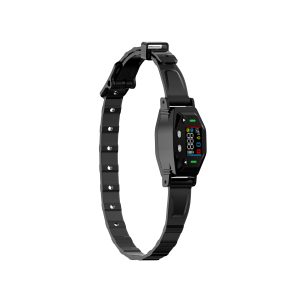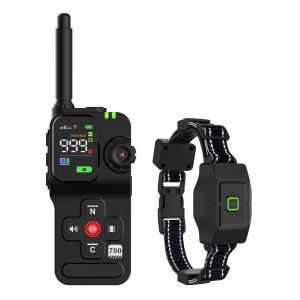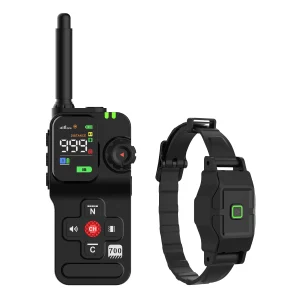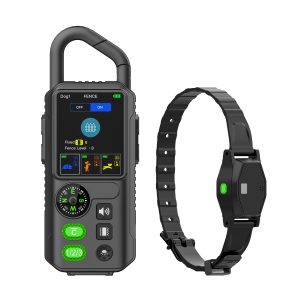Dog training collars with remote controls have become essential tools for professional trainers and pet owners alike. These devices offer a range of features designed to correct behavior, improve obedience, and enhance communication between you and your dog. However, the effectiveness of these tools heavily depends on the quality of the product and the reliability of the supplier. This article explores the key aspects of dog training collars and provides guidance on choosing the right supplier for your needs.
1. How Remote Dog Trainers Work
Remote dog trainers operate through a handheld remote that sends signals to a receiver collar worn by the dog. The collar delivers stimuli such as:
-
Audible Tones: A beep sound to get the dog’s attention23.
-
Vibration: A tactile stimulus to discourage unwanted behavior23.
-
Static Stimulation: A mild electrostatic pulse that can be adjusted to various levels (e.g., 1-100 levels) to match the dog’s temperament23.
These stimuli are designed to interrupt undesirable behaviors like excessive barking, digging, or chasing, allowing trainers to reinforce positive actions quickly and effectively5.
2. Types of Remote Dog Trainers
Remote training collars come in various types to suit different needs:
-
Range: Collars can offer ranges from 600 yards to 1,800 feet, making them suitable for backyard training, parks, or large open spaces37.
-
Stimulation Modes: Most collars include multiple modes, such as sound, vibration, and static shock, with adjustable levels for customization23.
-
Waterproofing: Many modern collars are IP67-rated waterproof, ensuring durability and functionality in all weather conditions13.
-
Multi-Dog Systems: Some suppliers offer collars that can train multiple dogs simultaneously with a single remote7.
3. How to Choose a Dog Training Collar Supplier
Selecting the right supplier is critical for ensuring product quality, safety, and effectiveness. Here are key factors to consider:
-
Product Quality and Safety: Look for suppliers who prioritize humane training methods. Features like adjustable stimulation levels, conductive silicone contact points (to prevent skin injuries), and safety certifications (e.g., FCC, CE, UL) are essential25.
-
Range of Products: A good supplier offers collars with varying ranges, stimulation modes, and customization options (e.g., OEM services) to meet diverse training needs17.
-
Technical Support and Warranty: Reliable suppliers provide robust customer support, detailed user manuals, and warranties (e.g., 1-year warranty) to ensure customer satisfaction15.
-
Reputation and Experience: Suppliers with years of experience and positive feedback from professional trainers are more likely to deliver high-quality products8.
-
Ethical Considerations: Choose suppliers who emphasize humane training practices and provide clear guidelines on proper collar use to avoid misuse5.
4. Recommended Dog Training Collar Supplier
While many suppliers exist, Wellturn stands out as a reputable manufacturer of remote dog training collars. Their products are known for:
-
Advanced Features: Wellturn collars often include multiple stimulation modes (tone, vibration, static shock), adjustable levels, and long-range capabilities (up to 1,000 meters)1.
-
Durability: Their collars are IP67 waterproof and made from high-quality materials like ABS and PC, ensuring longevity1.
-
Safety and Compliance: Wellturn products comply with international safety standards (e.g., FCC, CE) and are designed to prioritize animal welfare1.
-
Customization Options: They offer OEM services, allowing businesses to customize collars for specific needs1.
Wellturn’s commitment to quality and innovation makes them a top choice for both professional trainers and pet owners.
Choosing the right dog training collar supplier is essential for achieving effective and humane training results. Prioritize suppliers who offer high-quality products, safety features, and reliable customer support. Wellturn exemplifies these qualities, making them a recommended choice for anyone seeking dependable remote training solutions.
Remember, a dog training collar is a tool to facilitate communication, not a substitute for positive reinforcement and patience. Used correctly, it can strengthen the bond between you and your dog while promoting good behavior.




